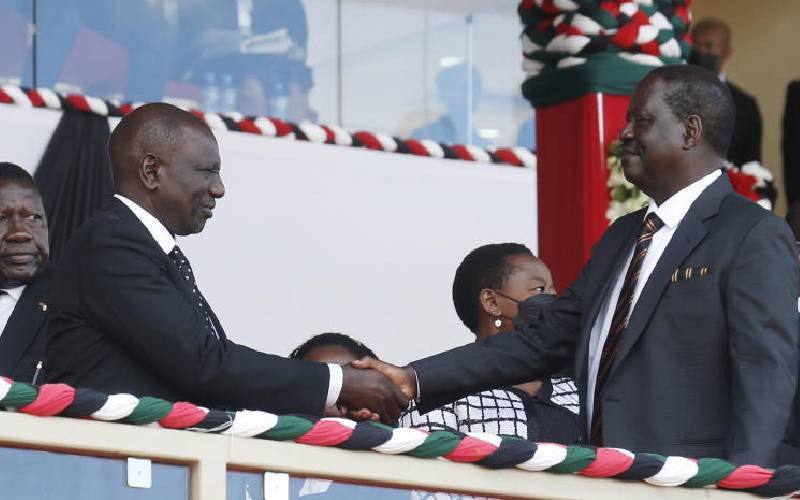
President William Ruto and opposition chief Raila Odinga agree on two critical things - revisiting the August 9 General Election and amending the Constitution. Their methods, however, differ.
While Raila insists on auditing the election results, President Ruto's Kenya Kwanza Alliance is pursuing retribution against persons they accuse of alleged subversion.
The Azimio leader was not specific on how such an audit would be achieved constitutionally, given that the law mandates the Supreme Court to test the credibility of a presidential election.
Facts First
This story continues on The Standard INSiDER. Subscribe now for unfiltered journalism that holds power to account.
Already have an account? Login
 The Standard Group Plc is a multi-media organization with investments in media
platforms spanning newspaper print
operations, television, radio broadcasting, digital and online services. The
Standard Group is recognized as a
leading multi-media house in Kenya with a key influence in matters of national
and international interest.
The Standard Group Plc is a multi-media organization with investments in media
platforms spanning newspaper print
operations, television, radio broadcasting, digital and online services. The
Standard Group is recognized as a
leading multi-media house in Kenya with a key influence in matters of national
and international interest.










